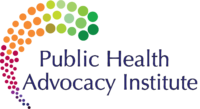BOSTON – Two non-profits that use litigation as a public health strategy have joined forces in a lawsuit accusing the Coca-Cola Company (“Coke”) along with the American Beverage Association (“ABA”) of misleading the public about the science that links heart disease, obesity, and diabetes to consumption of sugary beverages. For years, the Public Health Advocacy Institute at Northeastern University School of Law in Boston and the Center for Science in the Public Interest in Washington, DC relied on civil litigation as a tool to achieve policy change to benefit public health.
Download the Complaint here.
The lawsuit was filed today in federal court in the Northern District of California on behalf of a California non-profit, the Praxis Project, which has had to devote resources to correcting the misleading messages that Coke and the ABA have disseminated. These include spreading the notion that the main cause of obesity is lack of exercise or that “a calorie is a calorie,” regardless of whether it comes from Coke or from kale. The science, in fact, shows that sugary drinks such as Coca-Cola have been found to play a real role in the obesity crisis and that calorie intake is more significant than calorie expenditure in terms of the problems of obesity and overweight. The lawsuit also accuses Coke of failing to comply with its pledge to not market to children. The action alleges violations of California’s Business and Professional Code as well as negligent and intentional breaches of a special duty to protect the consuming public.
The plaintiffs seek a court order to enjoin Coke and ABA from denying the link between sugary drinks and obesity, diabetes, and cardiovascular disease and to stop any marketing to children. They also seek a court order for defendants to disclose and publish all research they have directly or indirectly conducted on the impact of sugary beverages on health and the impact of exercise on obesity vs sugary drink consumption. Furthermore, the plaintiff asks the court to order the defendants to fund a corrective public education campaign and place prominent warnings on their internet sites that consumption of sugary beverages can lead to obesity, diabetes, and cardiovascular disease.
The attorneys for the plaintiff include Maia C. Kats, litigation director of the nonprofit Center for Science in the Public Interest; Andrew Rainer, litigation director of the nonprofit Public Health Advocacy Institute; and Michael R. Reese of the law firm Reese LLP.
PHAI attorney Andrew Rainer considers this lawsuit to be about defending science from manipulation by those who seek to increase profit at the expense of public health. Rainer says, “the Public Health Advocacy Institute has joined in this complaint in an effort to prevent the distortion of science for corporate gain. Just as the tobacco industry manipulated and distorted science for decades to deny the dangers and addictiveness of cigarettes, and the oil industry works to systematically distort science to deny climate change, Coca Cola and the American Beverage Association are engaged in a campaign to deny the established science linking sugar-sweetened beverages to obesity and diabetes.”
Mark Gottlieb, Executive Director of the Public Health Advocacy Institute, characterizes this filing as, “the tip of the iceberg when it comes to purveyors of sugar-added products seeking to shift all responsibility for health harms to their consumers. Coke pays dietitians to tell consumers things like drinking coke can be a healthy snack and pays scientists to deny that sugary drinks are linked to obesity and then suggests that the main cause of obesity and related disease is lack of exercise. The hypocrisy of suggesting to consumers that burning calories through laughing can offset the harmful effects of drinking soda is no laughing matter. And, yes, Coke really suggested that.”
PHAI\’s partner, the Center for Science in the Public Interest included the following bullet points from the complaint in its press release.
- Coca-Cola’s senior vice president, Katie Bayne, claims that “[t]here is no scientific evidence that connects sugary beverages to obesity.”
- “There is no unique link between soda consumption and obesity,” claims a post on the ABA’s website.
- “Simply put, it is wrong to say beverages cause disease,” the ABA stated in another release.
- Coke’s incoming CEO, James Quincey, equated sugar-sweetened beverages to any other calories, dismissing their unique contribution to the obesity epidemic by asserting such beverages contribute only two percent of calories overall.
- Coke also paid health professionals to promote sugar-sweetened beverages, including one dietitian who suggested that an eight-ounce soda could be a healthy snack, like “packs of almonds.”
The Public Health Advocacy Institute set up its Center for Public Health Litigation in 2014 in order to hold responsible corporate interests that harm public health and defend policies that protect public health.

